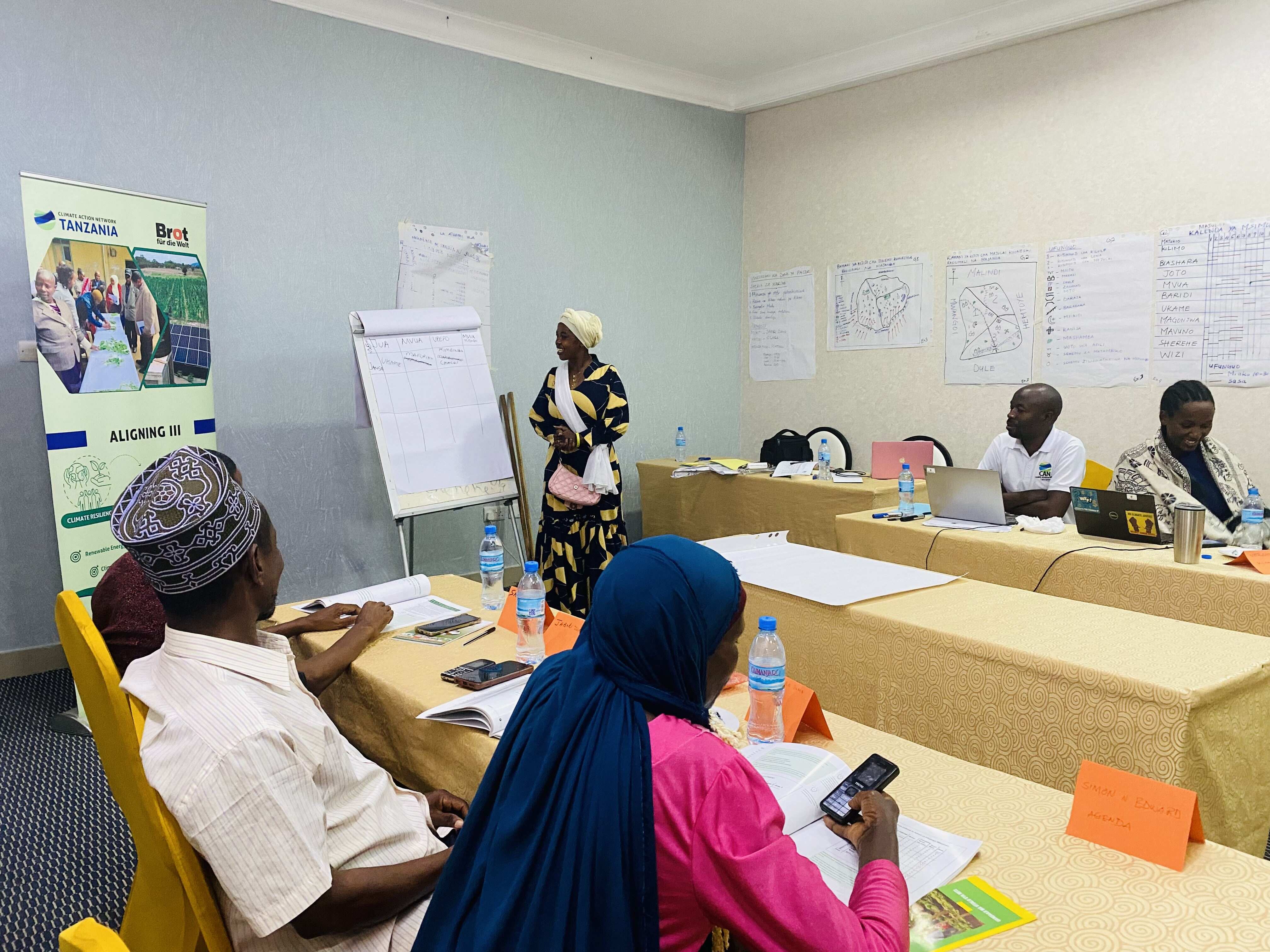
Published: APRIL 14, 2025
Tanzania is increasingly vulnerable to the impacts of climate change, including rising temperatures, droughts, and floods. According to the Tanzania Meteorological Authority (TMA), 2023 was the warmest year since 1970, with an average temperature of 24.5°C, 0.6°C above the long-term average (1991-2020). The agricultural sector, reliant on rainfall for over 70% of its operations, is particularly vulnerable to frequent droughts, resulting in crop losses.
The Climate Action Network Tanzania (CAN Tanzania) continues to play a vital role in strengthening community resilience to climate change. Through capacity-building programs, CAN Tanzania empowers civil society organizations to actively participate in sustainable development that prioritizes environmental protection and poverty reduction.
As part of its ongoing efforts, CAN Tanzania, in collaboration with Sustainable Agriculture in Tanzania (SAT), organized a five-day training session from April 8th to April 12th. The training equipped participants with the Participatory Assessment of Climate and Disaster Risks (PACDR) tool which empowers communities to assess climate change vulnerabilities and develop effective adaptation strategies.
The training which focuses on key modules, including community environmental assessment, climate hazard analysis, and action planning, fosters community engagement in identifying resources, analyzing climate risks, and designing tailored locally–led solutions.
By enhancing the capacity of our Network Members through training programs like PACDR, allows them to replicate the approach and engage their communities in developing action plans that will showcase the resources of their villages, the impacts of climate change on those resources, strategies for coping with the impacts, and the distribution of responsibilities for implementing the action plan at the household, community, and development partner levels. This will strengthen national and international efforts to address the impacts of climate change and ensure that no one is left behind in the movement to build climate resilience.
CAN Tanzania remains a crucial partner in national and international efforts to combat climate change. The network strives to ensure that no one is left behind in these efforts and the implementation of effective climate change adaptation measures at the community level, marking a significant step toward a climate-resilient nation.
